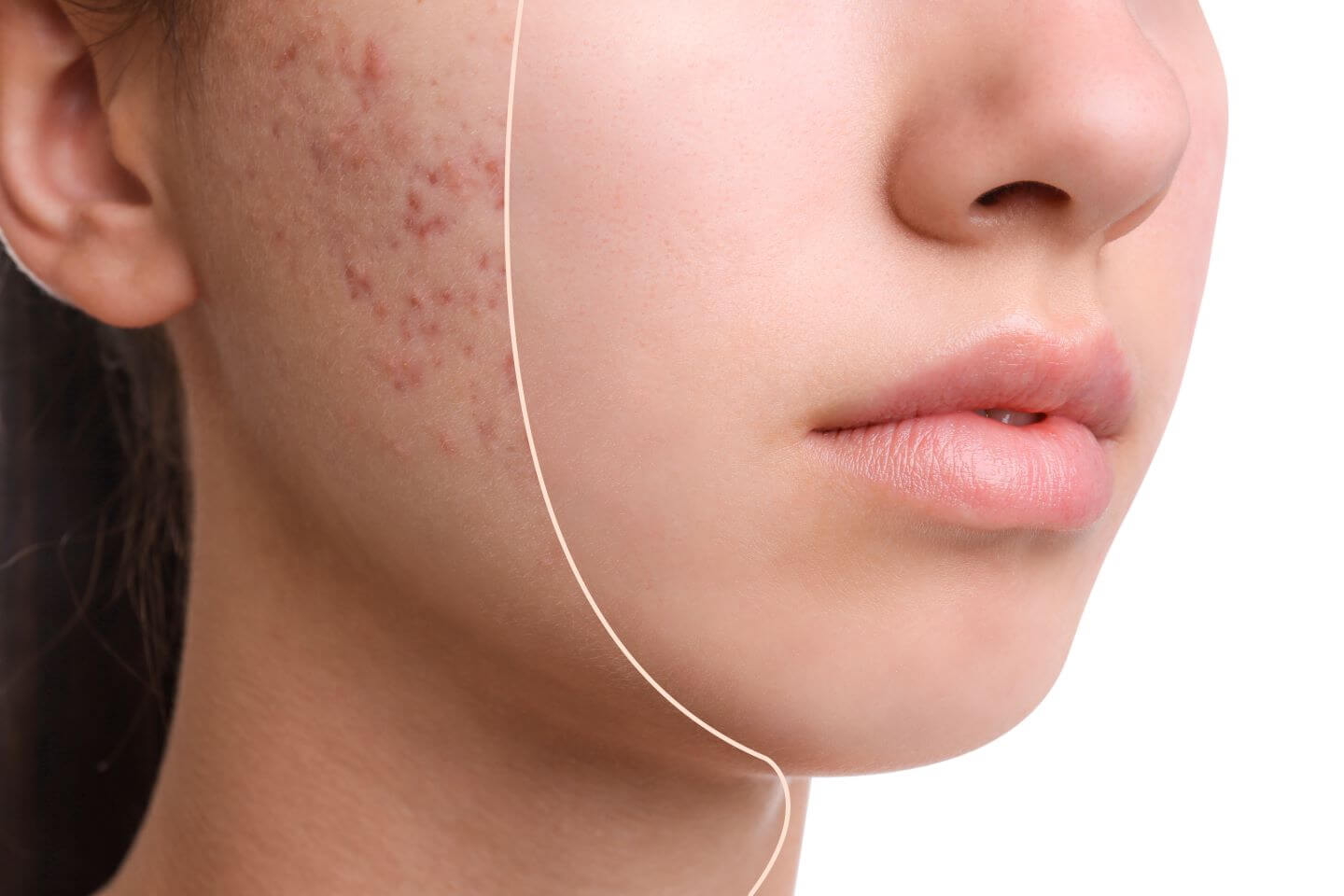Acne is one of the most common chronic skin health concerns. According to research conducted by the American Academy of Dermatology, about 85% of people between the ages of 12 and 24 have some form of acne. It’s no surprise that finding a reliable acne treatment is one of the top reasons patients reach out to their dermatologists. Accutane, one of the leading acne treatments, is often viewed as a last resort due to the potential health risks. According to Dr. Deepa Patel of U.S. Dermatology Partners in Rockville and Silver Spring, Maryland, “Accutane works. It is extremely effective in clearing up acne breakouts. However, due to the numerous possible adverse effects related to this medication, it’s not a safe option for all patients. For this reason, many of my patients ask me about Accutane alternatives, and I have many go-to acne treatment options that clear skin and help to keep it clear.” In this blog, Dr. Patel will walk through Accutane alternatives and acne treatment options to keep your skin healthy.
How Does Accutane Help with Acne?
Accutane is the original brand name for an acne medication with the active ingredient isotretinoin, which is derived from vitamin A. Vitamin A topical and oral medication treats acne by increasing skin cell turnover and reducing the production of the skin’s natural sebum oil. It’s a prescription medication that’s taken for a short time to clear up breakouts and keeps acne-prone skin clear for the long term.
What Concerns Are Related to Accutane?
While Accutane treatment works, it isn’t always the best option for everyone due to the potential health risks. Dr. Patel describes these concerns saying, “Due to the potential side effects of Isotretinoin, I usually keep it in reserve as a treatment if a patient has failed other options. It can cause liver damage, especially when people consume alcohol during treatment. It can also cause harm to expectant mothers and lead to birth defects, so you should take precautions to avoid pregnancy during treatment and take pregnancy tests regularly. Additionally, stomach issues, as well as an impact on mental health, can occur, so it is important to screen a patient for any relevant past medical history.” While these are more severe risks associated with isotretinoin use, some of the less serious effects include:
- Dry skin
- Chapped lips
- Itchiness or rash
- Skin sensitivity
- Dry mouth
- Aches and pains
- Hair thinning
- Increased photosensitivity
- Sensitivity to sunlight
Establish & Maintain a Good Skincare Routine
According to Dr. Patel, “One of the best alternatives to Accutane is avoiding the need for this more advanced treatment to begin with. Many people end up with severe acne breakouts that are difficult to clear up because they aren’t maintaining a consistent skincare routine. It may seem overly simple, but establishing a good skincare routine with your dermatologist and keeping up with it every day is essential to minimize the number and severity of acne breakouts.”
Apply Retinols
Retinols are like a lighter alternative to isotretinoin that are safe and effective for everyday use. Like Accutane, retinols are derived from vitamin A. Unlike isotretinoin, they are applied topically rather than taken orally. Retinols are available over the counter in a variety of strengths. There are also prescription-strength options called retinoids if you need higher doses of the active ingredients to achieve the desired results. Retinols promote cell turnover and decrease oil production, but they can also cause many of the same concerns as Accutane. According to Dr. Patel, “It’s important to consult with your dermatologist before beginning retinol use. They can recommend a good dosage and specific retinols to help you achieve your goals while minimizing irritation.” It’s always best to start with a very low dosage of retinol and work your way up to stronger formulas. The retinols in the SkinCeuticals brand begin with a low .3% retinol and go all the way up to 1% retinol. SkinCeuticals Retinol 0.3 is a great introductory product.
Use Antibacterial Medications
When it comes to alternatives to Accutane, Dr. Patel says, “Antibacterial acne medications offer similar results with fewer side effects. While Accutane works by increasing skin cell turnover and reducing oil production, antibiotics fight bacterial infections that lead to inflamed and infected acne that can be the most resistant to other treatment options.” For those with cystic acne or infected acne breakouts, antibacterial medications can help to clear up the infection, but they are not recommended for frequent or ongoing usage because people can develop a resistance to antibiotics with prolonged usage.
Take Hormone Medications
For women, hormonal imbalance is a common catalyst for acne breakouts. Regulating hormone production by taking oral contraceptives or spironolactone helps to clear up active acne breakouts and reduce the risk of future breakouts. Typically, hormonal birth control will be prescribed for people under the age of 35 and spironolactone is prescribed for those 35 and over. When it comes to hormone medications for female patients, Dr. Patel says, “This is another acne treatment option that requires careful consideration and discussion with your physician and dermatologist. Hormonal treatments impact overall health as well as skin health, so it’s important to understand potential side effects before choosing to move forward with these treatment options.”
Consider Aviclear & Other Laser Treatments
Light and laser treatments have been used to clear up acne breakouts for many years. Each laser is designed to achieve different skincare goals. Your dermatologist can walk through the different options available and how they can benefit your skin health. Aviclear is one of the many laser treatment options available, and it was specifically designed to target oil-producing parts of the skin to reduce the risk of clogged pores and acne breakouts.
Discuss Your Acne Treatment Options with a Dermatologist
Every person and every acne treatment plan is different. The best way to clear up an acne breakout and keep your skin healthy is to work with a dermatologist to develop a personalized daily skincare routine and ongoing treatment plan. If you’re interested in working with one of the knowledgeable professionals at U.S. Dermatology Partners, just take a few minutes to complete our online scheduling form. Once we hear from you, a local team member will be in touch to finalize the details of your upcoming visit.
Find a location near me
or


